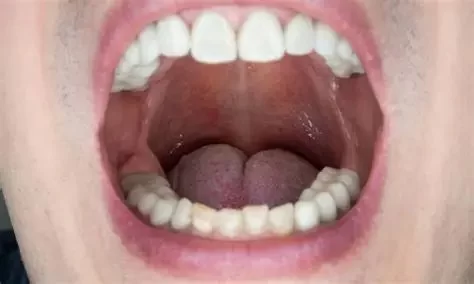
Can Poor Dental Hygiene Cause Oral Thrush?
Many people are surprised to learn that poor dental hygiene can contribute to oral thrush, a yeast infection in the mouth caused by an overgrowth of Candida fungus. While oral thrush is often associated with weakened immune systems, antibiotics, or certain medications, neglecting oral care can create the perfect environment for Candida to thrive. In the United States, where sugary diets and busy lifestyles are common, understanding this link is important for both prevention and treatment.
Understanding Oral Thrush
Oral thrush, medically known as oral candidiasis, appears as white, creamy patches on the tongue, inner cheeks, or roof of the mouth. Patients often describe a cotton-like feeling, discomfort while swallowing, or changes in taste. Although it can affect anyone, adults with dentures, children, and people with compromised immune systems are at higher risk. The question, can poor dental hygiene cause oral thrush? becomes particularly relevant when plaque buildup, bacteria, and food debris create an imbalance in the mouth.
How Poor Dental Hygiene Plays a Role
1. When oral care routines are neglected, bacteria and yeast coexist in an unbalanced way. Without brushing or flossing, the buildup of plaque and food particles provides fuel for Candida growth.
2. Denture wearers who fail to clean their appliances properly may also notice persistent thrush infections. Fungal organisms often cling to the surface of dentures, especially when left overnight.
3. Skipping routine dental checkups further increases the risk. Professional cleaning helps control harmful bacteria and removes buildup that can’t be handled by brushing alone. Without these preventive steps, thrush can develop more easily and recur frequently.
Real-Life Stories That Highlight the Connection
Take David, a 42-year-old office worker in Chicago, who admitted he brushed only once a day and often skipped flossing. After a round of antibiotics for a sinus infection, he developed painful white patches in his mouth. His dentist explained that weak oral hygiene practices worsened the imbalance of bacteria and yeast, triggering oral thrush. Once David improved his daily routine and visited a dentist regularly, his symptoms cleared and didn’t return.
Such stories remind us that thrush is not only a medical condition but also a lifestyle wake-up call. In fact, countless patients across the U.S. report recurring thrush infections until they address basic oral care habits.
Other Risk Factors Beyond Hygiene
Although poor dental hygiene is a significant factor, it is not the only one. People with diabetes, weakened immune systems, or those taking corticosteroid inhalers are more vulnerable. Additionally, diets high in sugar or processed foods provide an environment where Candida thrives. Smoking and dry mouth, whether from dehydration or certain medications, also increase the risk. Understanding how these factors combine with hygiene lapses gives a fuller picture of why thrush appears.
Practical Steps to Prevent Oral Thrush
Prevention starts with consistent and effective oral hygiene. Dentists recommend brushing at least twice a day with fluoride toothpaste, flossing daily, and rinsing the mouth after meals. Denture wearers should remove and clean their appliances every night. Reducing sugar intake and staying hydrated also help maintain a balanced oral environment. For individuals using inhalers, rinsing the mouth after each use can significantly cut down the risk of fungal growth.
Professional care is equally important. Regular dental visits ensure early detection of oral thrush or other underlying problems. Clinics like Family Dentistry Online provide resources, tailored recommendations, and access to trusted professionals who can help maintain long-term oral health.
Expert Guidance on Treatment Options
When oral thrush develops, antifungal medications prescribed by a dentist or physician are the primary treatment. These may come in the form of lozenges, tablets, or mouth rinses. However, medication works best when combined with improved oral care habits. Without addressing the root cause—such as poor hygiene—patients often face recurring infections. This is why professional advice, combined with lifestyle adjustments, leads to the most lasting results.
Why Awareness Matters
The broader answer to can poor dental hygiene cause oral thrush is yes, but it’s part of a bigger health story. Oral hygiene is not just about fresh breath or a bright smile—it plays a role in preventing infections that affect daily comfort and overall health. Raising awareness about this connection empowers individuals to take control of their dental care before problems escalate. With the right knowledge and guidance from experts, oral thrush becomes a preventable condition rather than a recurring frustration.







 United Smiles4.0 (66 review)
United Smiles4.0 (66 review) Dr. Edward D. Williams4.0 (10 review)
Dr. Edward D. Williams4.0 (10 review) Park Avenue Dental Professionals4.0 (119 review)
Park Avenue Dental Professionals4.0 (119 review) Triplett & Livingston Dental5.0 (964 review)
Triplett & Livingston Dental5.0 (964 review) Bloomington Family Dental4.0 (298 review)
Bloomington Family Dental4.0 (298 review) Avi Malkis, DDS5.0 (142 review)
Avi Malkis, DDS5.0 (142 review) The Importance of Oral Health Education During Pregnancy for a Healthy Pregnancy
The Importance of Oral Health Education During Pregnancy for a Healthy Pregnancy Best Tips for Brushing Your Teeth Properly for Healthy Gums: Essential Techniques for Oral Health
Best Tips for Brushing Your Teeth Properly for Healthy Gums: Essential Techniques for Oral Health Why Skipping Dental Checkups Can Lead to Bigger Oral Health Problems
Why Skipping Dental Checkups Can Lead to Bigger Oral Health Problems Advantages of Porcelain Dental Restorations
Advantages of Porcelain Dental Restorations How Can Diabetes Cause Tooth and Gum Problems? Preventing and Managing Oral Health Issues
How Can Diabetes Cause Tooth and Gum Problems? Preventing and Managing Oral Health Issues Healthy Habits for Promoting Good Oral Health and Hygiene: Tips for a Healthy Smile
Healthy Habits for Promoting Good Oral Health and Hygiene: Tips for a Healthy Smile